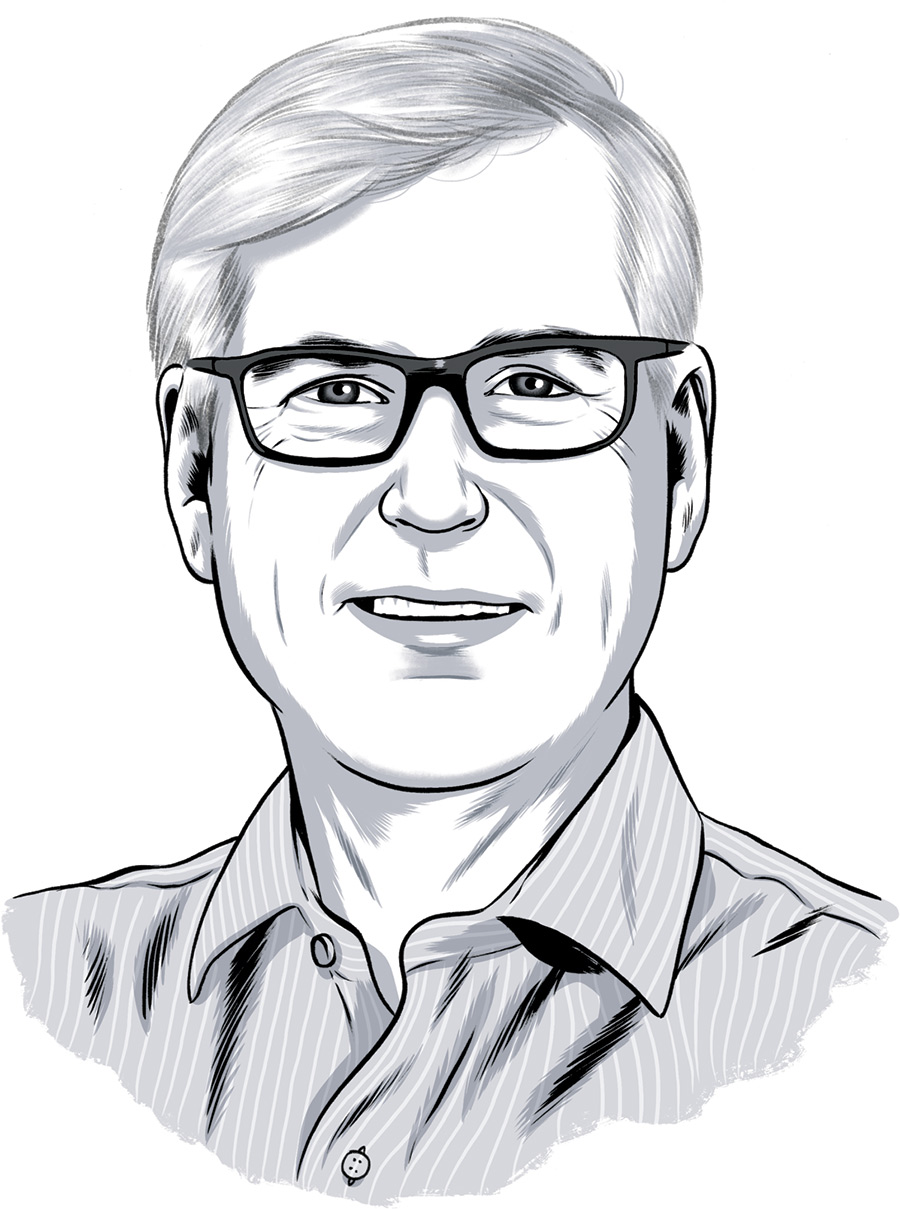

Illustration: Joel Kimmel
David Scadden ’75, H’08
The Cell Whisperer
by Michael Blanding
As a young medical student, David Scadden ’75, H’08, changed his career direction when his mother was diagnosed with cancer. As he describes in Cancerland: A Medical Memoir, Scadden vowed to go into cancer research to help alleviate the suffering of families like his. Now one of the world’s pre-eminent researchers in using stem cells to fight cancer, the former Bucknell trustee and co-founder of the Harvard Stem Cell Institute is translating that research into potential cures.
Q: How did your personal experience shape your decision to go into cancer research?
The cancer diagnosis is one that completely changes your way of thinking. In the book, I wanted to communicate just how powerfully it affects people’s sense of themselves and what’s valuable and important. Having your foundation rocked by a medical event can certainly happen in many fields, but it seems it’s such a common event for many of us when it comes to cancer. It seemed an area that demanded my attention because we just needed to do better, and if we needed to be better, I thought I should be part
of it.
of it.
Q: You were an English major at Bucknell. How did that inform your role as a doctor?
One of the things that drew me to medicine was the connection to people. In literature, you can really gain insight into the great themes of humanity and the challenges we all confront in different ways. It gave me a discipline of mind and way of thinking that was very helpful, but it also gave me a certain common language for connecting with people as they were facing something terribly frightening and isolating. Finding those lines of communication could take people away from the immediacy of the problem they were facing and make them feel a little more human.
Q: What led you to look at stem cells as a way to treat cancer?
A lot of cancer biology has been focused on studying cells in a Petri dish and defining specific chemical poisons that can be used to pound cancer cells into oblivion. But it occurred to me that there might be some other approach to deal with cells that are normally a protector of our health but that somehow turn into this nefarious foe. I became interested in using what we know about stem cells to think about what goes wrong in cancer, and how we might correct that. Stem cells are ill defined; they can become many different things and to be useful, they have to differentiate and become more mature. Cancer cells can’t mature; they just create more of their immature selves — like stem cells that get stuck. We have been working on how to get them to mature, so they are no longer this population of unregulated cells but become a more normally regulated contributor to health and tissue creation. It’s a different approach and one that is now being tested in patients. We will soon know if it is totally crazy or will lead to good things.
Q: What is the Harvard Stem Cell Institute’s role in that?
When we founded the institute in 2004, we explicitly made it about therapies that had an effect on people, rather than just fostering great research. Our goal is to be a bridge between academia and industry, because we see industry as the essential partner in ultimately turning discoveries into therapies. We have made some discoveries that are now either in clinical trials or have been taken up by companies — 29 new ones to date — that will be able to move them forward to see if they really can make a difference for people.